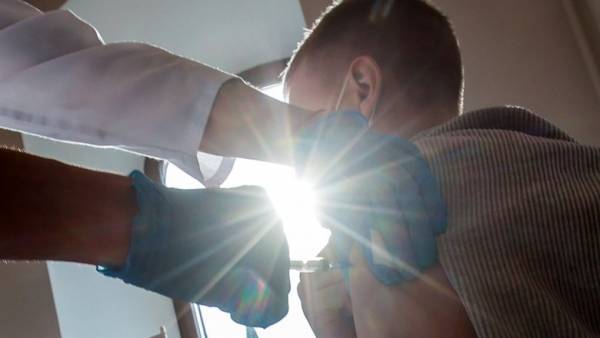
The Verkhovna Rada on December 2 & nbsp; approved the law on & nbsp; transfer to citizens for & nbsp; vaccination against & nbsp. In the & nbsp; budget for & nbsp; 3 billion hryvnia ($ 111 & nbsp; million) are allocated. “ Alive '' Ukrainians will not & nbsp; receive money.
Payments will be made to & nbsp; virtual payment cards in the & nbsp; Diya program. Citizens will be able to send funds to & nbsp; purchase of a subscription to a gym or fitness club, tickets to & nbsp; cinema, theater, museum, concert hall, tickets for & nbsp; travels within & nbsp; countries and & nbsp; books.
This amount will be available in & nbsp; within four months after the day of receipt of funds. The program will operate in & nbsp; this year and & nbsp; until & nbsp; the end of the next. The & nbsp; law says that & nbsp; it is designed to provide social support to insured persons who have suffered from & nbsp; restrictive quarantine measures, which led to & nbsp; a temporary stop in the work of business entities. It is also assumed that & nbsp; this decision will stimulate people to be vaccinated against & nbsp; COVID-19.
The & nbsp; Ministry of Health of Ukraine reported that & nbsp; as of & nbsp; as of & nbsp; Sunday, almost 14.4 & nbsp; million citizens were vaccinated in the country, of & nbsp; about & nbsp; 13 & nbsp; million have completed a full course of vaccination.
Ukraine began vaccination with one of the & nbsp; last in & nbsp; Europe & nbsp; & mdash; 24 & nbsp; February. The country uses drugs from the British-Swedish company AstraZeneca, the American company Pfizer and & nbsp; its German partner BioNTech, CoronaVac from the Chinese company Sinovac Biotech, and & nbsp; also the vaccine of the American company Moderna and & nbsp; the drug from & nbsp; company Janssen, which is a division of the American Johnson & nbsp. Johnson. From & nbsp; application and & nbsp; production of the Russian drug “ Sputnik V '' Kiev refused.